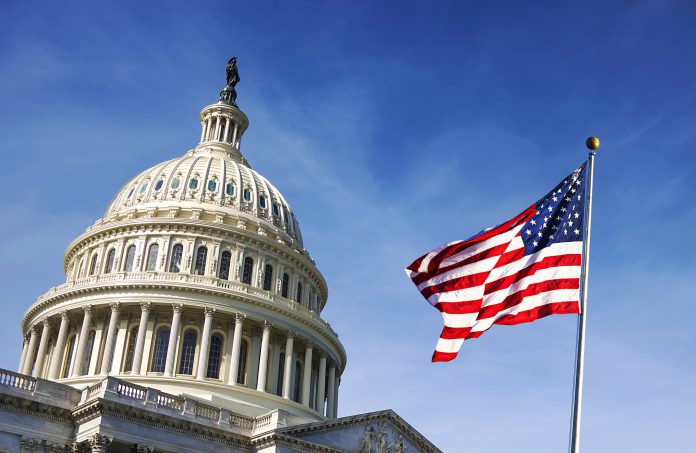By Larry Bell
Let’s recognize, above all, that America is a transcendent and blessedly enriched national “melting pot” multi-culture of shared, yet also mutually respectful individual freedoms, values, heritage backgrounds, and ethnicities irrespective of skin color, gender, or economic status founded upon constitutional precepts of equal opportunity and justice for all.
I will forego all the typical obligatory disclaimers that our nation isn’t perfect, either now or in the past…we all recognize this.
Suffice to say that no other country is more perfect, and to observe that most of them lag very far behind.
What really matters is that as a united society, we continually strive to be better, and that true progress is indisputably evident.
Nevertheless, there are some unfortunate positions of influence who turn blind eyes to that progress and America’s most enviable societal virtues.
We are currently witnessing a surge of neo-Marxist tribal ideologies weaponizing historical-cultural, ethnic, racial, and gender groups against one another — with anti-American divide and conquer, controlling agendas straight out of Mao’s multiple warfront playbook.
There is arguably no more insidiously toxic and alarming example than “Critical Race Theory” (CRT), which has invaded our K-12 schools, universities, government agencies, and even the U.S. military.
This egregious group identity-based assault on our American institutions, culture, and values is purposely intended to conjure the essence of what Karl Marx promoted in his call for victim-oppressor “class consciousness.” White males are highlighted as a specially privileged central oppressor class, i.e., “white supremacist.”
Fundamentally, CRT, as interpreted by the doctrine of its “1619 Project,” mendaciously claims that the United States was originally founded for the express purpose to institutionalize oppressive Black slavery, and that this so-called white supremacist oppression remains at the root of American society today.
Further, CRT argues that race is a social construct, and that racism is not limited to individual bias or prejudice, but it is also systemically embedded in America’s history and capitalistic, legal, and political systems.
CRT promotion and weaponization of identity divisions embodies a concept that stereotypically distinguishing group attributes are to be exclusively owned rather than mutually shared among larger multi-cultural communities.
According to the Oxford English Dictionary, the term for this, “cultural appropriation,” was formally added as recently as 2017.
It was defined as: “The unacknowledged or inappropriate adoption of the practices, customs, or aesthetics of one social or ethnic group by members of another (typically dominant) community or society.”
And while that term had begun to gain more widespread use in the 1980s, OED’s first citation can be traced to a 1945 essay by Arthur E. Christy, discussing “European cultural appropriation from the Orient.”
Advocates argue that there is a major distinction between cultural appropriation, and cultural appreciation, the former being distinguished by exploitive and disrespectfully “fetishizing” motives of a dominant class.
This, they distinguish as different from a practice of “acculturation,” or “assimilation,” which is premised upon a co-equal cultural exchange.
So the danger, they argue, is that cultural appreciation can easily morph into cultural appropriation where it demeans rather than honors another group through harmful deepened stereotypic divides.
Yes, these are exactly the sort of deep, harmful divisions that destructive CRT dogma aggressively implants.
Take a recent manifestation of this madness — the renaming of the Cleveland Indians to the Cleveland Guardians — for example.
Guardians against what?
Protection from invading Palefaces, maybe?
I can’t help but wonder what my great-great-grandmother, a member of the Winnebago Ho-Chunk tribe in northern Wisconsin, would think about that now.
After all, she married one of them.
And think of other similar offenses.
Like recent plans to rename the NFL team formerly known as the “Washington Redskins” since 1933, which will be rebranded the “Washington Football Team” until they come up with a less “racially offensive” brand.
The term “Washington Warriors” will not be considered, having been deemed disparaging of Native Americans.
Some may still remember when Marquette University changed the name of its NCAA basketball team from Warriors to Golden Eagles in 1994, objecting to an Indian warrior mascot and silhouette logo.
Incidentally, the word warrior originates from an entirely respectful old North French term “werreier,” which first appeared in English in the 14th century.
The word later became broadly attributive to soldiers killed in battle and buried with honors: “warriors of nations,” who selflessly demonstrated great vigor, courage, battle skills, determination, and tenacity.
They displayed grit — fearlessness-boldness, the “heart of a warrior.”
After a half-century, we’re also witnessing recent petitions — to change the name of the Atlanta Braves to the Atlanta Hammers and ban the popular “Tomahawk Song” accompanied with the banishment of foam replicas.
If they go with “Hammers,” why not go further and name them the Atlanta Carpenters, which would be less aggressively menacing to that fragile white masculinity the woke crowd talk about?
According to CRT activists, falling into evils of cultural appropriation is much more than a slippery slope. It constitutes a veritable landslide, including the music we listen to, the clothes we wear, and the food we eat.
For example, I find myself unconsciously guilty of listening to rock n’ roll legend Elvis Presley, a transparently obvious appropriator of African-American gospel and blues music.
And while admittedly never have owned a horse or cow, I’ve also been known to disingenuously appropriate cowboy hats which date back to Mongolian horsemen of the 13th century, and were later appropriated by Mexican Vaqueros before being re-appropriated by my politically incorrect Texas “badass” role models.
As for food, I haven’t decided yet whether to go out and culturally appropriate Tex-Mex, Italian, Indian, French, Chinese, Thai, or Japanese after I finish writing this.
In any case, I’ll make it a special priority to guiltlessly, and gratefully enjoy every bite.
Originally published by America Out Loud. Republished with permission.












Larry, I find your article quite inspiring. I may wander out this evening to shamelessly snarf down some “Tex-Mex” myself…